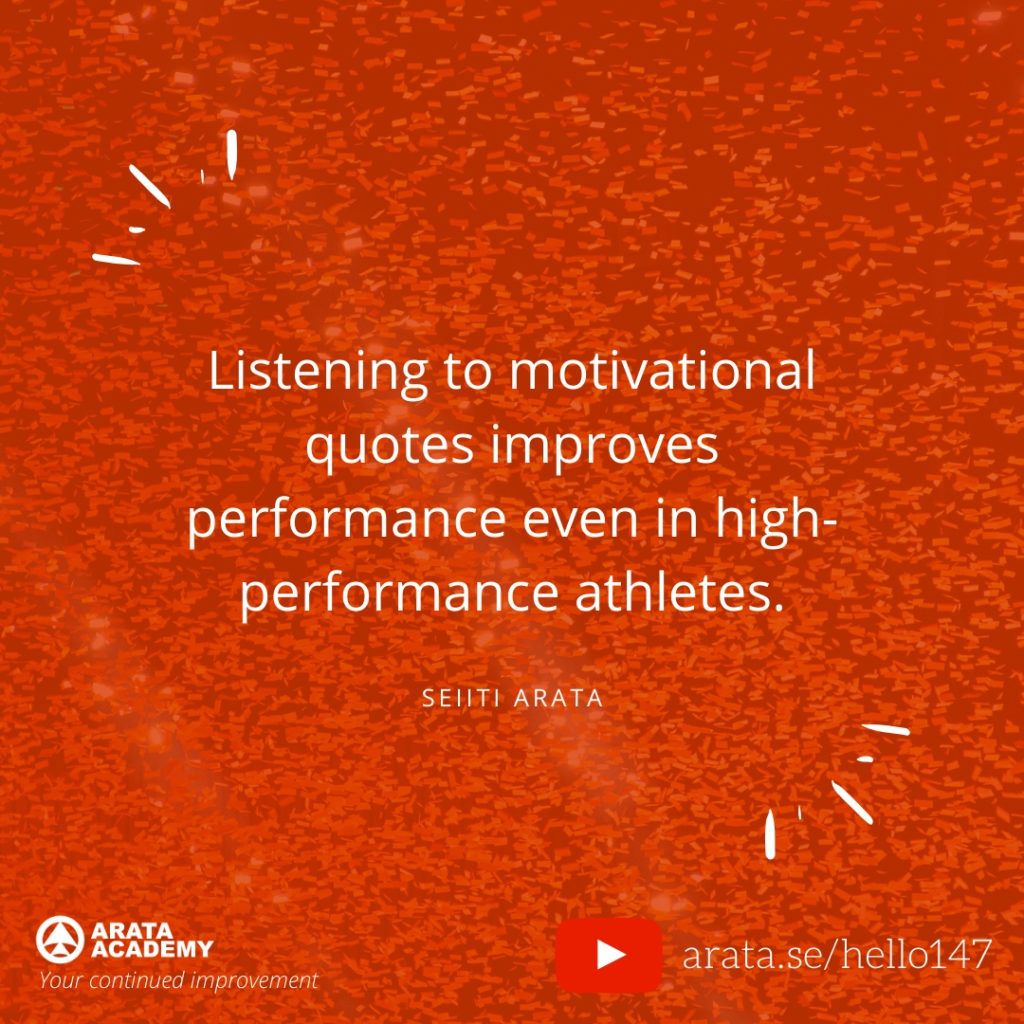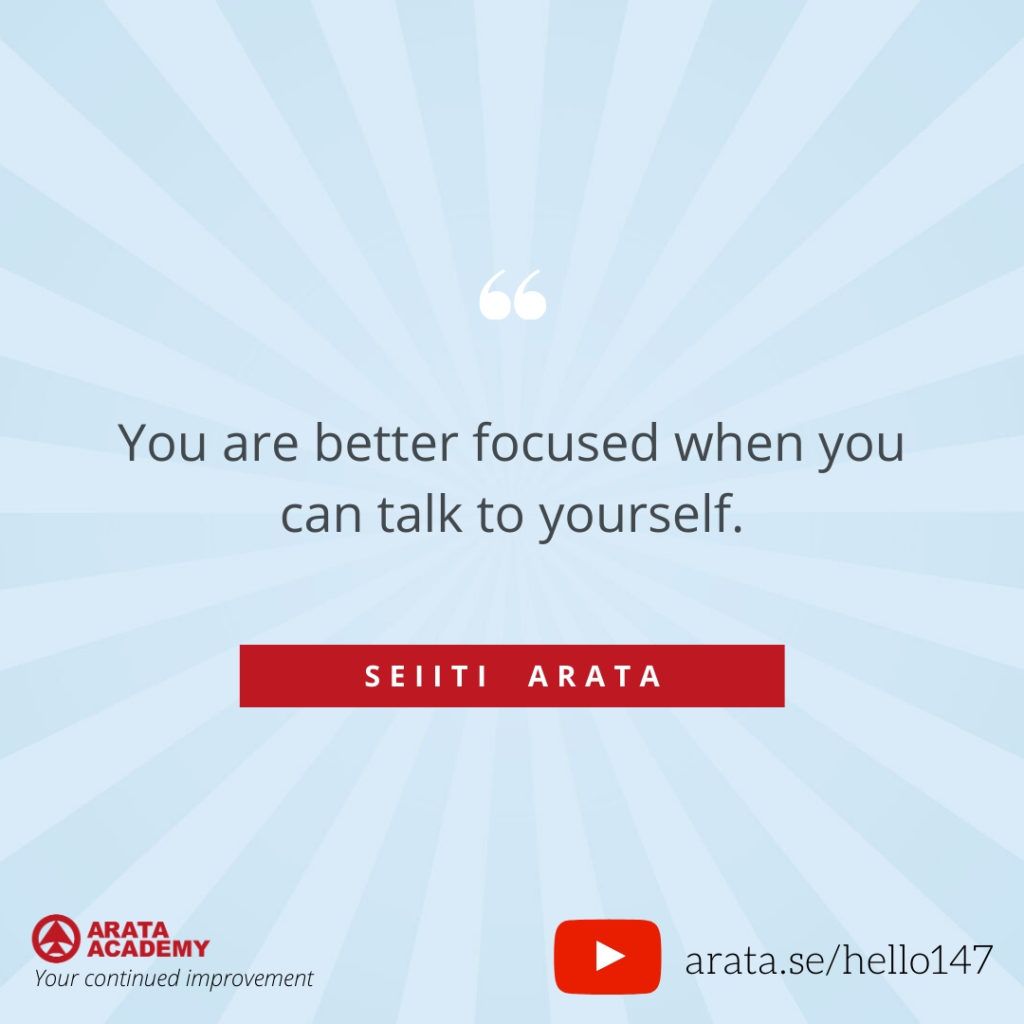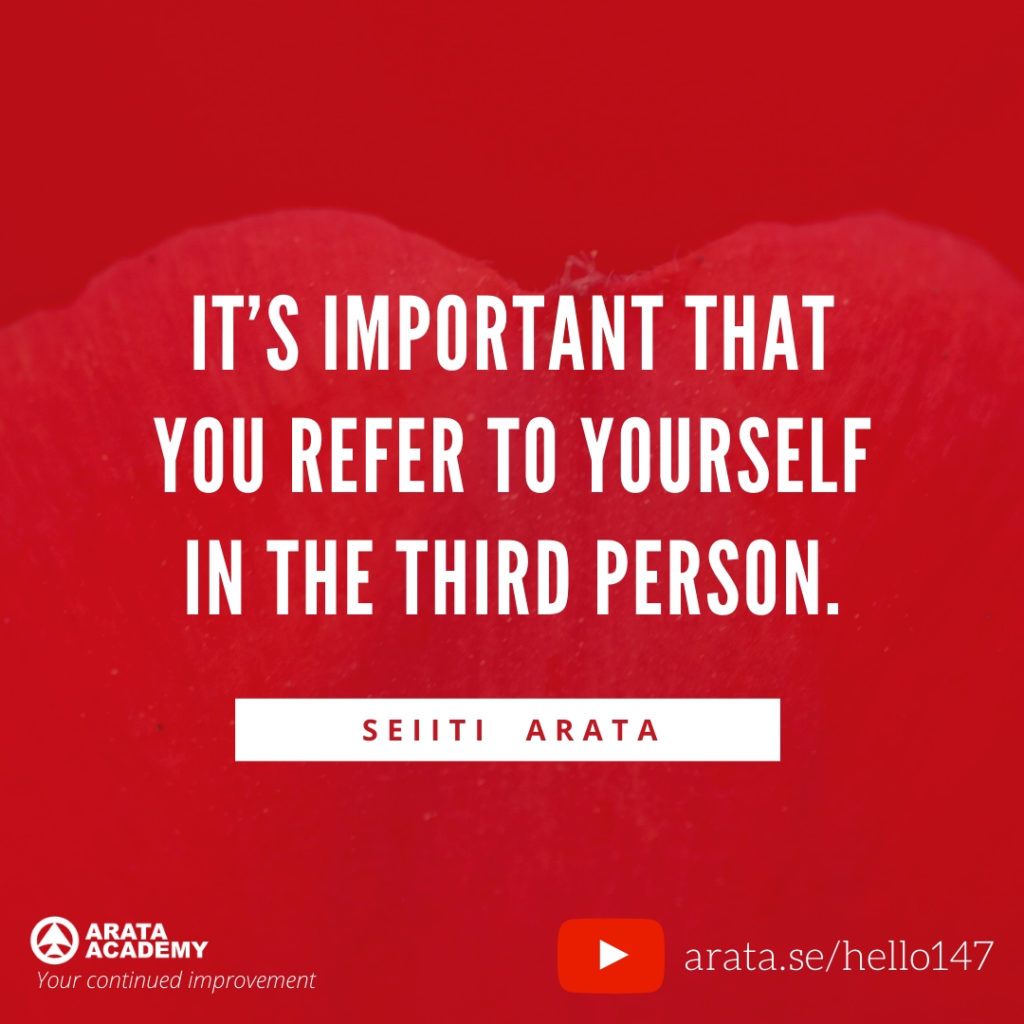Hello! Seiiti Arata. When you find people talking alone to themselves, it looks like that person is crazy, doesn’t it? But talking to yourself is normal practice that everyone does … including you. And this private conversation has several uses, including to increase your focus and concentration.
You can talk to yourself just in your head (without moving your lips) or you can talk out loud. Is it the same thing? Not always.
Our thoughts and speech are not fully connected and because of that we talk to ourselves [source: https://arata.se/source-4snx]. And this private conversation helps to bridge the gap between our various chaotic thoughts and our slightly more organized speech. That’s how we improve our cognition, create sentences and communicate.
You focus better when you talk to yourself correctly.
First I’m going to tell you about a scientific experiment. If you keep saying nonsense (blablablabla) while studying, you are less likely to process and absorb information. To learn more you can see studies on articulatory suppression.
This is obvious. If I keep saying nonsense in the middle of my study session, it is obvious that my retention is worse. But I had to tell you this to give you a practical tip that is the exact opposite. If you verbalize phrases related to the task you are doing, you improve your concentration.
For example, when you speak the name of an object out loud, you are more likely to identify that object. Maybe that’s why we have the habit of walking around the house saying out loud “where’s my wallet … the wallet … where’s the wallet, huh? Where did I leave the wallet? ”When I say the word“ wallet ”out loud, I increase my focus to identify where the wallet is.

Motivational phrases help more than neutral phrases.
The perceived fatigue and pain reduce your physical performance when you are in a sports practice or doing a resistance test. If you hear motivational phrases, will your brain have more resistance to deal with fatigue?
There is an experiment on physical performance in which scientists split volunteers into groups to test the impact of motivational phrases.
Both groups of volunteers had to ride an bike with maximum effort. One group heard neutral phrases and another group heard motivational phrases.
The result? The group that heard motivational phrases performed better than the group that only heard neutral phrases. Understood? It would be more or less like you catching two equally prepared athletes, one listening to an economics audiobook and the other listening to a motivational audiobook and probably those who are listening to the motivational audio would be able to work harder and have better performance.
Because of that, it doesn’t make much sense for you to engage in negative or defeatist language, such as saying out loud, or even in silent thought, things like “I’m really an idiot, I’ll never make it, I better give up now before cause problems or embarrass others in front of others”.
It is important that you refer to yourself in the third person to have a new perspective.
I talked about this in the previous episode. Talking to yourself can increase your confidence and motivation and this is even stronger when you speak in the third person.
When soccer player legend Pelé says to himself “Now Pelé is going to do the dribbling. Great. Now Pelé will kick for the goal ”, Pelé is talking to himself in the third person. Several other athletes are known for referring to themselves in the third person, as well as Andre Agassi, who in his autobiography says that tennis is the sport in which the athlete speaks to himself more than in any other sport.
It is common to hear him saying on the court “Come on, Andre, let’s hit now with strength and precision”. Does this technique work for you to motivate yourself and increase your performance? The answer is yes.

You don’t have to be a high-performance athlete or a narcissistic person to refer to yourself in the third person. There is a well-known interview in which Malala uses the third person to answer a question about what she would do in a dangerous situation. Try the intentional use of the third person and you can gain a new point of view and question yourself better.
You can use your name to calm down.
Imagine that you are part of a scientific experiment. The scientist shows you a highly disturbing image in a life-threatening situation, such as a murderer pointing a gun at you. The scientist asks you to talk about the image and how you would save your life… using the first person.
You would have to say something like “I would try to disarm him”, “I would run in a zigzag”, “I would cry and beg to spare my life”. In any case, you would probably remain upset and in a state of stress.
Now, if the scientist asked you to speak in third person, your emotional involvement in the situation would be reduced. As my name is Seiiti, then I would say “Seiiti is going to use a negotiation technique to change the killer’s attitude”, “Seiiti is going to hit the killer’s throat”.

Speaking in the third person using your name helps you make more rational decisions. Compared to first-person speech, the electrical signals from your brain indicate that you are much calmer when talking to yourself in the third person using your name.
This discovery indicates that you can overcome situations of phobia and stress by using your name. If your name is Alex, instead of thinking “I don’t need to be afraid to get on the plane”, you can think “ok, Alex, you don’t have to be afraid to get on the plane”. And to improve even more, you can reframe the sentence to a positive tone, removing the word “fear” saying “Alex, the plane is safe and undergoes several inspections and you can go in peacefully”.
I teach this technique within the FOCUS course, in which I explain the technique of you adopting the perspective of a cameraman who is filming your own life. You thus gain a new vision with the necessary distance to have a better evaluation and decisions.
You have probably found yourself in some rare situations talking to yourself in the third person. This is normal and there is no need to be ashamed or scared. It’s just a different way of thinking that can help you.
Different ways of talking to yourself trigger different ways of thinking in your brain, especially in the cerebral cortex (which takes care of more developed functions, such as language) and also in the amygdala (which take care of more primitive functions, such as fear).
Basically, when referring to the third person, you gain greater self-distance and this gives you greater self-control, and a more competent performance and clearer thinking. Think of a video game. You are not the character that is there in the middle of the game. You are the person with the control in hand moving the character.
So, how to talk to yourself? You need to do three important things: first, you need to use your own name to gain distance and a more objective perspective on the situation. Second, you must be precise and specific about what kind of action you should take. Third, you must use positive statements to understand the larger context of who you are in the face of the situation. As an additional gift for you who have the habit of staying until the end, I will give you a very practical example.

Imagine that your name is William and you are going to do a job interview and you are feeling nervous. You can use this model:
– William, you can be calm. It is not the first job interview, nor will it be the last. There are many opportunities. This interview is for a company that is very good and the salary is great, but you can breathe easy because the best thing to do is to be calm and professional. You have all the necessary technical skills and are a professional with integrity and loyalty, which is important in management positions. William, also remember to tell how you managed the internationalization project at the other company last year. Even if they choose another one, you will have made a great presentation and they will remember you.
Notice in this example that William used his own name to be emotionally detached and calm, which is one of the main objectives sought. He made positive statements about the professional qualities he possesses. And he was specific to highlight useful actions to do, such as mentioning a practical case in which he worked to manage a special project. This is an example that you can adapt to any challenge you have ahead.
You need to learn to control your own thoughts in order to live better. In the FOCUS course we teach you to master your own cognitive model, focusing on what really matters – that’s why I invite you to start your improvement process by visiting https://arata.se/focuscourse
